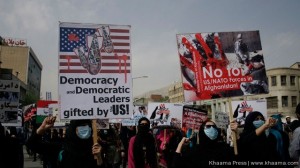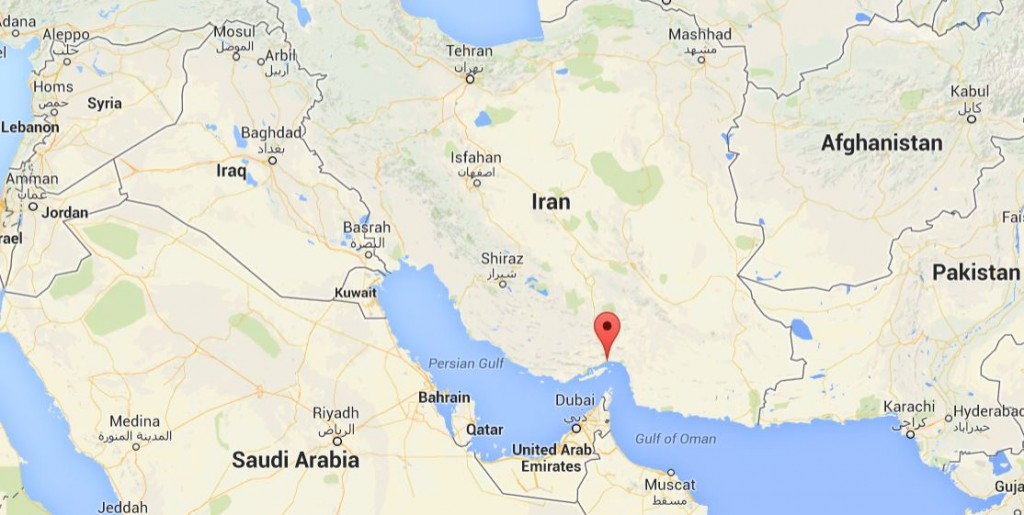US Military Suddenly Decides to Classify Its Analysis of Afghan Troop Capability
The Special Inspector General for Afghanistan Reconstruction just released the 25th quarterly report (pdf) on US reconstruction efforts in Afghanistan. We are of course at a major crossroads in US involvement in Afghanistan, as US and NATO combat involvement are being phased out and Afghanistan assumes responsibility for its own security. Some US and international troops will remain in Afghanistan after the end of this year under the new Bilateral Security Agreement, but with Afghanistan in charge it is of utmost importance that the Afghan National Security Forces (ANSF) are fully staffed and functional so that they can take on their responsibilities. One of SIGAR’s key roles in its oversight activity through the years has been to collect and review information coming directly from ISAF, the International Security Assistance Force, concerning the recruitment, training and subsequent capabilities of ANSF. ISAF ostensibly is a NATO team but is of course dominated, both in command and in personnel, by the US military.
Suddenly, in the final SIGAR report before the current ISAF mission ends and operations move to the new arrangement, ISAF, and more specifically ISAF Joint Command, has decided to classify the reports it prepares on ANSF troop capability. Here is Inspector General John Sopko in his cover letter accompanying the quarterly report:
This quarterly report also examines the reconstruction effort across the security, governance, and economic sectors. In the security sector, SIGAR was deeply troubled by the decision of the International Security Assistance Force (ISAF) to classify the executive summary of the report that assesses the capability of the ANSF. For years, SIGAR has used the ISAF report as a primary metric to show Congress and the public the effectiveness of the $61.5 billion U.S. investment to build, train, equip, and sustain those forces. Prior to this quarter, aggregate data on the operational effectiveness of the ANSF were unclassified in the Regional ANSF Status Report (RASR) as well as its predecessors, the Commanders’ Unit Assessment Tool (CUAT) and the Capability Milestone rating system.
ISAF’s classification of the report summary deprives the American people of an essential tool to measure the success or failure of the single most costly feature of the Afghanistan reconstruction effort. SIGAR and Congress can of course request classified briefings on this information, but its inexplicable classification now and its disappearance from public view does a disservice to the interest of informed national discussion. Moreover, while SIGAR understands that detailed, unit-level assessments could provide insurgents with potentially useful intelligence, there is no indication that the public release of aggregated data on ANSF capabilities has or could deliver any tactical benefit to Afghan insurgents.
It is very difficult to see this move by ISAF as anything more than a blatant attempt to cover up massive failure on the part of the efforts to train Afghan troops to take over their own security functions. This move by ISAF follows previous efforts that also come off as attempts to game the system so that evaluation of the always-claimed “progress” is difficult to impossible. Note in Sopko’s letter that he refers to three different systems by which troop readiness has been analyzed and reported. First, we had the Capability Milestone system, which was replaced by the Commanders’ Unit Assessment Tool (CUAT) and the now-classified Regional ANSF Status Report has replaced CUAT.
In March of 2013, I pointed out SIGAR’s frustration with how ISAF was gaming the CUAT:
A related area in which SIGAR has found a disgusting level of dishonesty is in how the US goes about evaluating Afghan forces in terms of readiness. Because it became clear to the trainers in 2010 that they had no hope of achieving the trained and independent force size numbers that NATO planners wanted (and because SIGAR found that the tool they were using at the time was useless), they decided that the only way to demonstrate sufficient progress was to redefine the criteria for evaluating progress. From the report:
In 2010, SIGAR audited the previous assessment tool—the Capability Milestone (CM) rating system which had been in use since 2005—and found that it did not provide reliable or consistent assessments of ANSF capabilities. During the course of that audit, DoD and NATO began using a new system, the CUAT [Commander’s Unit Assessment Tool], to rate the ANSF. In May 2010, the ISAF Joint Command (IJC) issued an order to implement the new system which would “provide users the specific rating criteria for each [ANSF] element to be reported by the CUAT including leader/commander considerations, operations conducted, intelligence gathering capability, logistics and sustainment, equipping, partnering, personnel readiness, maintenance, communications, unit training and individual education, as well as the partner unit or advisor team’s overall assessment.”
Since the implementation of the CUAT, the titles of the various rating levels have changed, as shown in Table 3.3. In July 2012, the Government Accountability Office (GAO) raised concerns that the change of the title of the highest rating level from “independent” to “independent with advisors” was, in part, responsible for an increase in the number of ANSF units rated at the highest level. GAO also noted that “the change lowered the standard for unit personnel and equipment levels from ‘not less than 85’ to ‘not less than 75’ percent of authorized levels.” In a response to SIGAR last quarter, the IJC disagreed with GAO’s assessment, saying a change in title does not “equal a change in definition.” Since last quarter, the IJC has initiated a CUAT Refinement Working Group to standardize inputs and outputs in the areas covered by the assessments.
But it turns out that the CUAT itself was developed only when SIGAR initiated an audit (pdf) of the Capability Milestone rating system. So, twice, when SIGAR decided to audit the system for evaluating Afghan troop readiness, ISAF responded by developing a totally new system, creating a strong discontinuity in the ability to track Afghan troop readiness over time. And now that we are at the most important moment for Afghan troops to be ready, ISAF decides that any information at all on their readiness is classified, even though they have provided the very same information without classification for years.
When we drill down to the details about the classification that SIGAR provides in the report, we see in footnote 196 (page 94) that they were informed of the classification in response to a data call submitted to IJC on October 3 of this year. Noting this and the arguments that SIGAR provides that aggregate data on Afghan troop readiness should not provide any sort of strategic advantage to insurgents, I submitted the following question to SIGAR: Read more →


